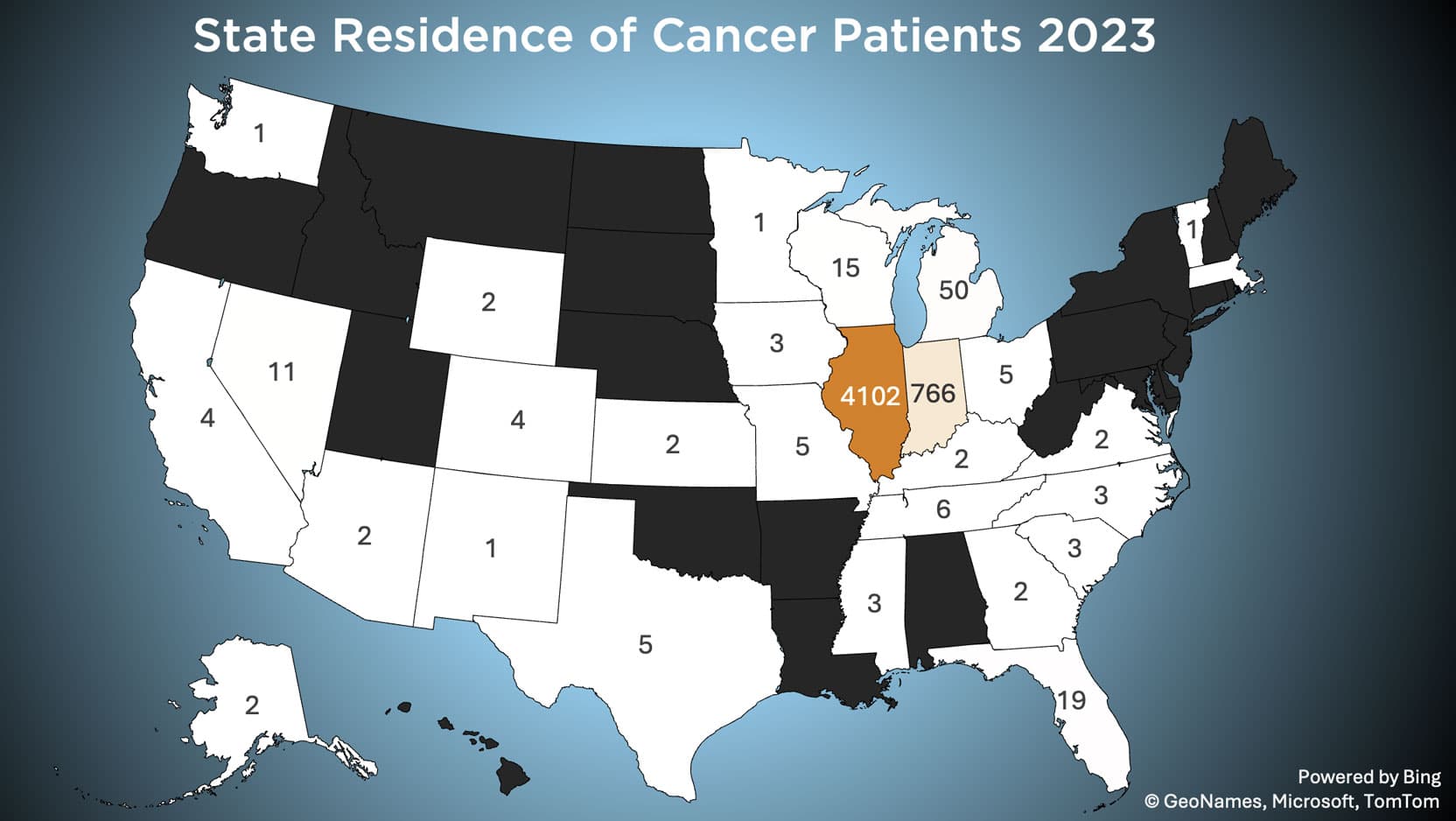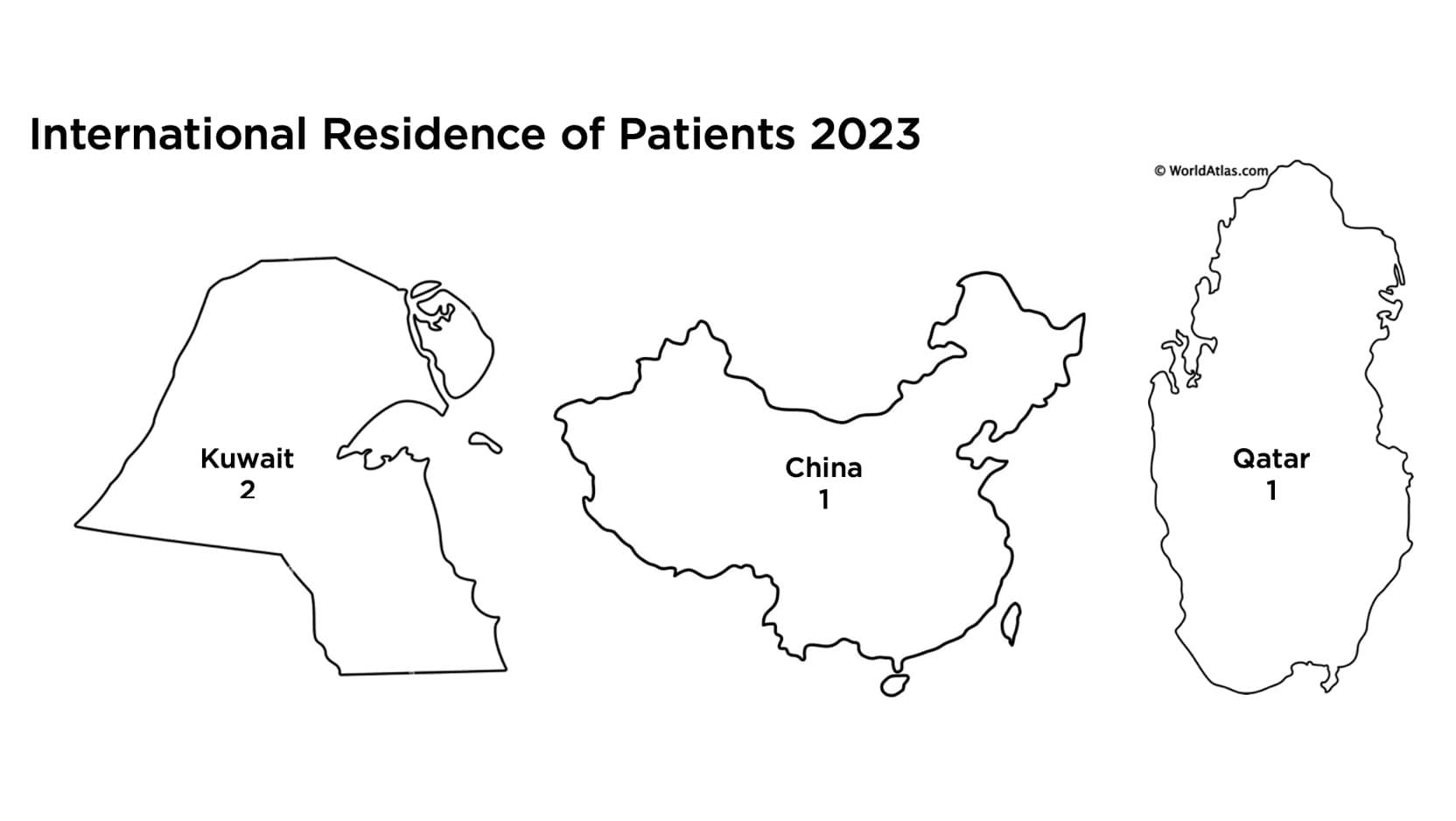Cancer Patient Demographics
The University of Chicago Cancer Registry collects, maintains and reports detailed information for pediatric and adult patients diagnosed with, and treated for, cancer at the University of Chicago Medicine, Comer Children's Hospital and the University of Chicago Medicine Comprehensive Cancer Center at Silver Cross Hospital.
A dedicated team of certified oncology data specialists provides important data services to advance basic, translational and clinical research at our nationally recognized American College of Surgeons-approved clinical cancer program.
Registry data are essential for not only advancing research to improve patient care, but also for cancer program development, community outreach activities and decision-making in oncology and public healthcare policies.
The most frequently seen cancers for adult patients representing 23% (1,122), were of the Genital Urinary System. For pediatric and adolescent and young adult patients, the most frequently seen cancers were tied between Endocrine and Leukemia (36 patients, 45%).
A dedicated team of certified oncology data specialists provides important data services to advance basic, translational and clinical research at our nationally recognized American College of Surgeons-approved clinical cancer program.
Registry data are essential for not only advancing research to improve patient care, but also for cancer program development, community outreach activities and decision-making in oncology and public healthcare policies.
Cancer Incidence by Type
In 2023, 5,029 patients were diagnosed and/or treated at UChicago Medicine for both malignancies and benign central nervous system neoplasms. Of these, the majority of patients (4,202, 84%) were newly diagnosed, and the remaining (827, 16%) are documented in the registry for recurrent or progressive disease or those that obtain a diagnostic confirmation at UChicago Medicine. Of those seen, 4,870 (97%) were adults (26-100+ years) at diagnosis and (159, 3%) were 0-25 years.The most frequently seen cancers for adult patients representing 23% (1,122), were of the Genital Urinary System. For pediatric and adolescent and young adult patients, the most frequently seen cancers were tied between Endocrine and Leukemia (36 patients, 45%).
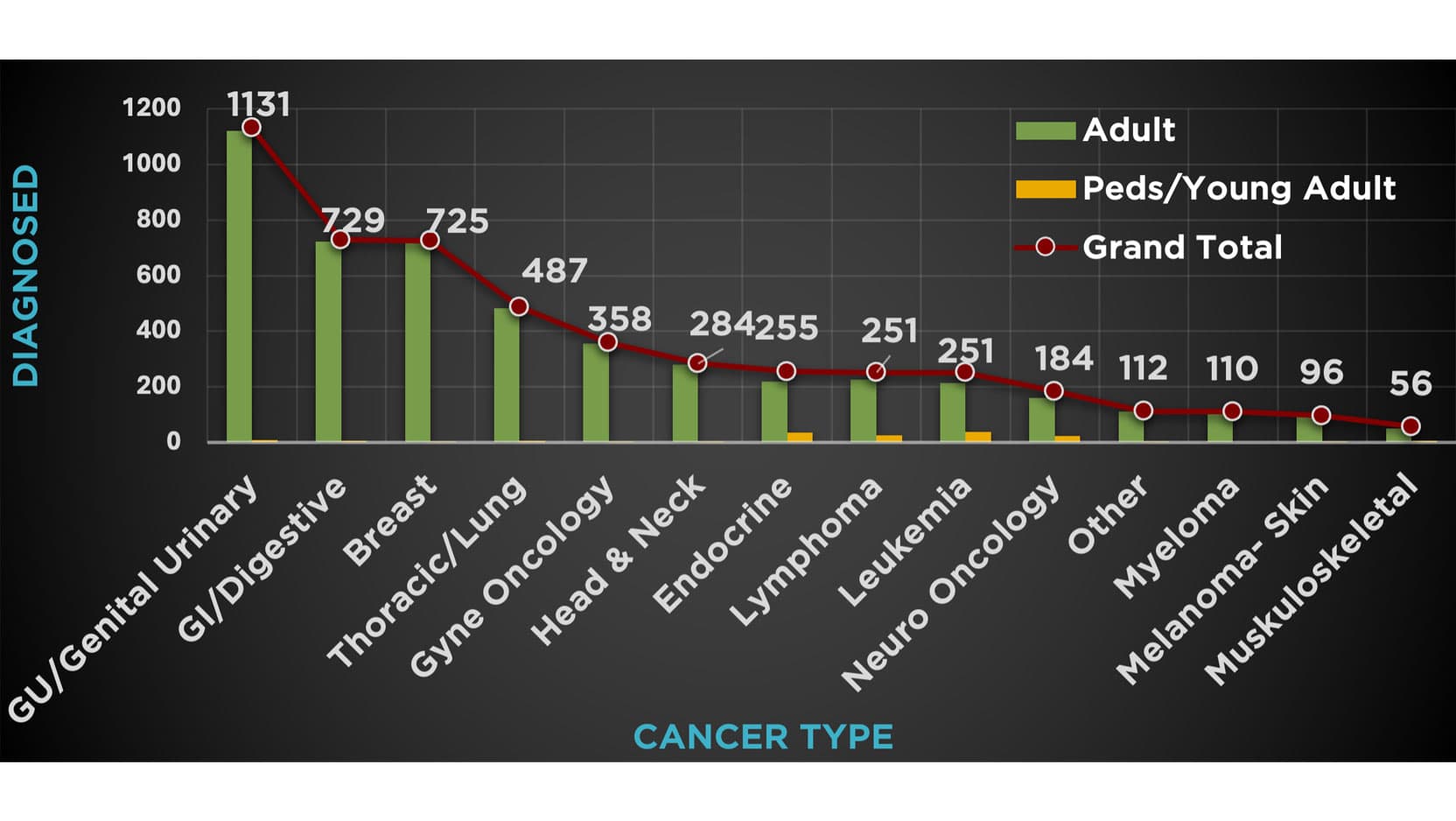
Patient Demographics
Distribution by race and gender shows that our patient population is predominately White (3,021 patients, 60%), followed by Black (1,393 patients, 28%) and Hispanic (332 patients, 7%); and Female (2,592 patients, 52%), followed by Male (2,437 patients, 48%). These trends are similar to those seen in recent years.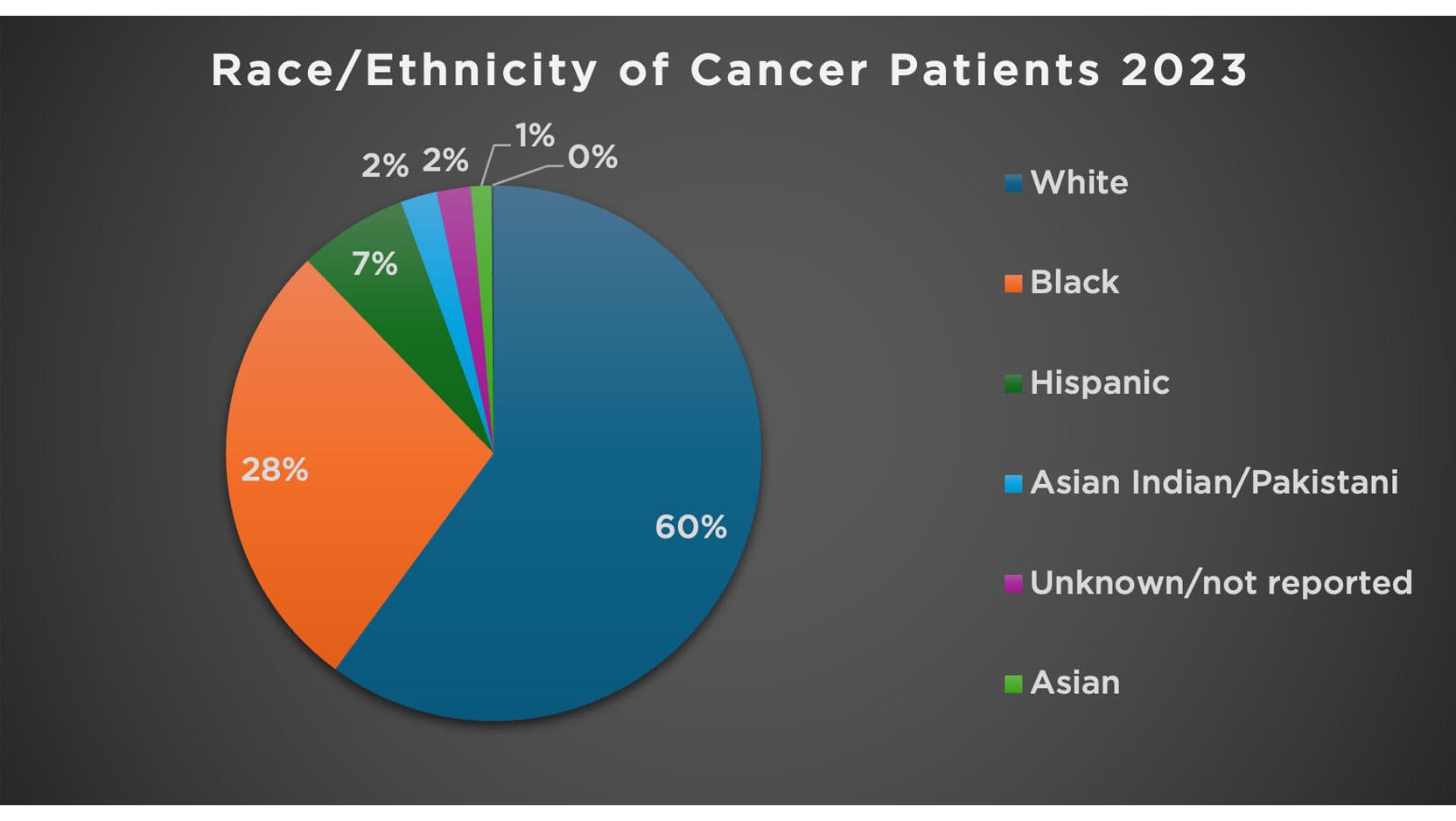
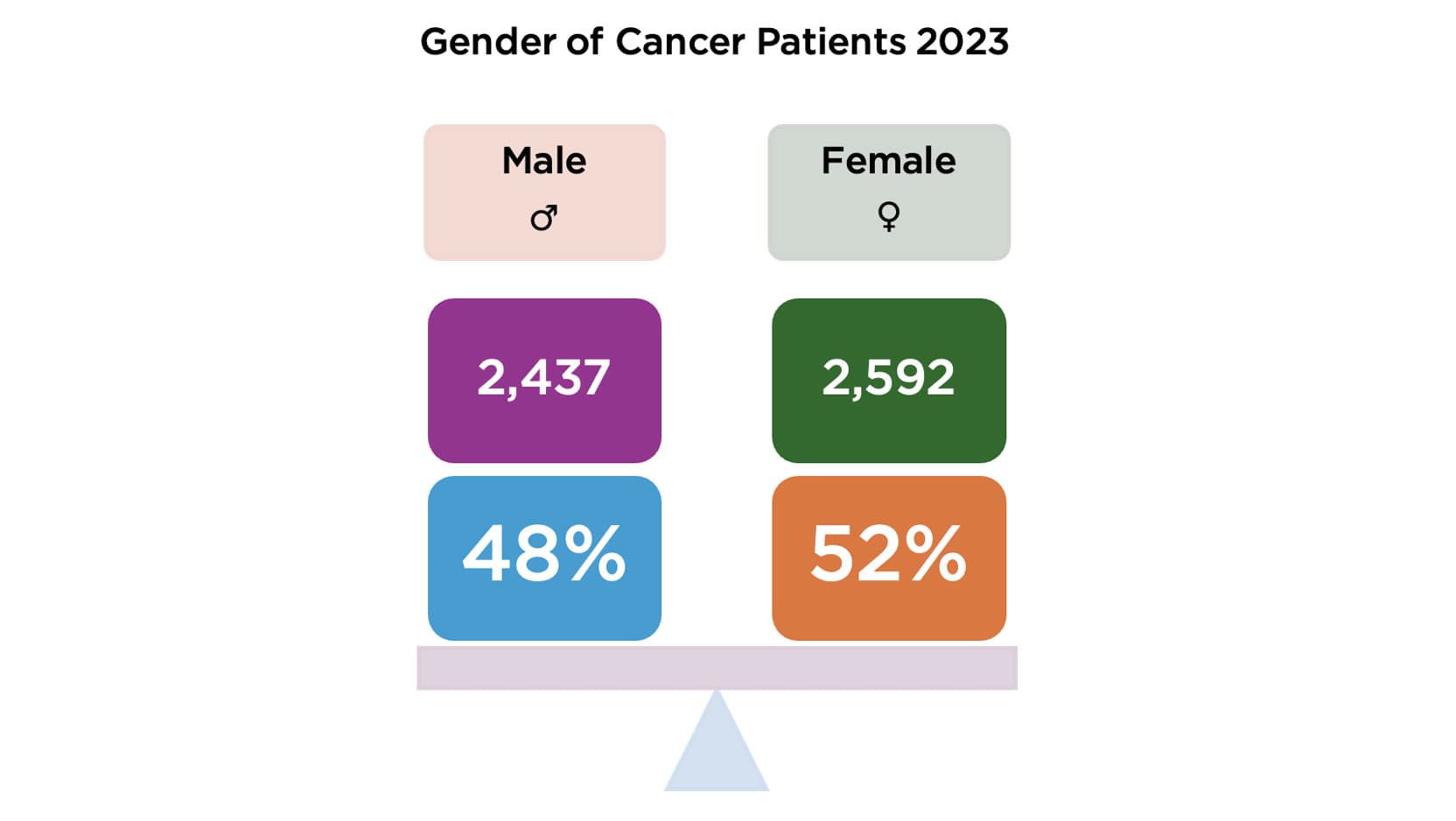
Patient Geographics
The majority of patients (4,102, 82%) seen in 2023 were Illinois residents. Nearly 17% (831 patients) of the total number of patients first seen in 2023 lived in other states, primarily in the neighboring states of Indiana (766, 15%) and Michigan (50, 1%). Four patients were from outside the United States, representing Qatar, China and Kuwait.